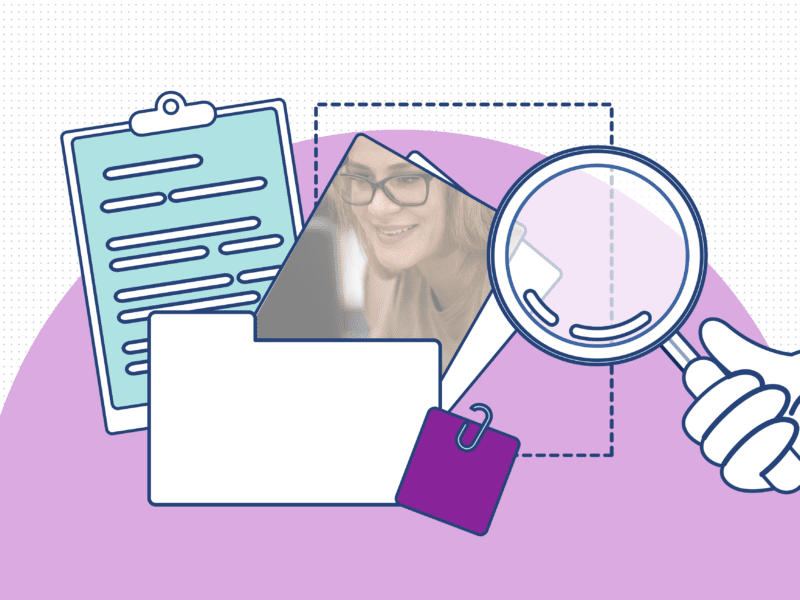
Let us be honest. A tender is often a time-consuming, complex, and, from time to time, even frustrating process. When your organisation has decided to implement a digital examination solution, you undoubtedly face a journey through the land of procurement. But does it really have to be a rough road to travel? In this article, we give you five tips about the procurement process.
1. The importance of doing market research
The most important thing about market research is, basically, to carry it out. At an early stage, you can browse online channels – the most obvious ones being Google and YouTube. Visit different vendors’ websites, subscribe to demos and webinars, and compare functionality, design, and cases, before you start sketching your requirements.
Identify institutions and municipalities in your country who have already implemented digital assessment. Reach out to institutions similar to your own and ask them about their experiences. Engage in local or national IT networks and join the discussion.
You can browse through our customer stories for inspiration. Once you have some names on your list, make sure to contact them and ask them how they have handled the transition to online assessment.
2. Framework agreements are cost savers
A tendering process can be complicated and could cut into your resources. Framework agreements save you the time and cost of a sourcing process as they abolish the need to renegotiate standard terms and conditions.
If a framework agreement exists, you should enter into a discussion with the framework holders. Call offs can be awarded any time up to the end of the framework agreement. Once the work has started the call off can continue beyond the period of the agreement until the work is done. There are several benefits connected with the use of framework agreements, the most important ones being:
- Predictability: The terms of engagement are already agreed
- Speed: No need to undertake a costly and time-consuming full procurement process
- Flexibility: Retain the benefits offered under the collaborative agreement while refining your requirements further
- Cost-saving: The contractual infrastructure of framework agreements almost invariably drives down costs
Inspera is on a number of framework agreements in Europe
- G-Cloud 11/12 (UK)
- Uninett (Norway)
- SUNET (Sweden)
- SKL Kommentus (Sweden)
- Local Software Asset Management agreements – talk to your IT manager for further information
3. Be the king of requirements
Start by identifying the problem you want to solve and then ask for the solution. You have already done your market research, so now is the time to go through old requirements, documents, and technical specifications. Reach out to benchmark organisations and ask if you could use their documentation for inspiration.
When establishing your requirements, you should focus on what is suitable, relevant, and connected to the solution. Label the requirements with Must, Should, or Could, and make sure you cover every aspect of your institution’s assessment needs. Carrying out institution-wide consultations with key interest groups can be a great way to identify both functional and non-functional requirements.
4. A focused user group in the hand is worth two in the bush
As part of your procurement process, you should form a small and relevant user group within your organisation. By involving your stakeholders from the very beginning, you make sure you identify and cover their needs and requirements.
We recommend that at this early stage, your user group or reference group should only consist of 4-6 people who have volunteered to be actively involved and invested in the project. Your user group could consist of 1-2 representatives from the academic staff, 1-2 people from the IT department, an ICT-professional, and 1 or 2 students.
5. You are buying more than just software
If you decide to go into tendering (e.g. if a framework agreement isn’t available), you should keep in mind to evaluate more than just the requirements. The implementation of a digital assessment platform is a business-critical change management process, and you are ultimately buying much more than a software solution. When you are shortlisting the vendors most likely to meet the needs of your institution, you should also base your score on:
- Capacity
- Experience
- References
- Demonstration
- Complexity
It’s important to find a vendor with the necessary expertise to ensure a successful organisation-wide implementation and rollout. When asking for references, make sure they are relevant and similar to the needs of your institution. Ask for several references and make sure to evaluate and score them based on their financial and organisational complexity. Always follow up and call the contact persons at the benchmark institutions.
Since you are likely to enter into a long-term relationship with your vendor, you should make sure to find the right match from the start. The people you are going to be working with is equally important to the project as the technology itself.
Do you want to learn more?
You can learn more in our ultimate guide for everyone who wants to plan and rollout a digital assessment project. Download the free eBook.
You are also welcome to contact us if you have any questions about e-assessment or the Inspera Assessment platform.



